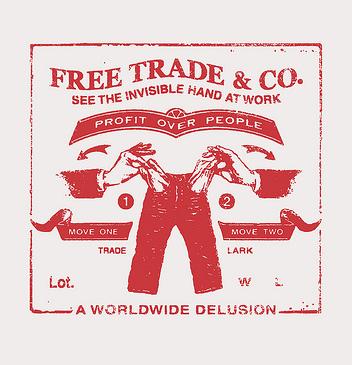Canada is now facing east and west as it attempts to negotiate trade deals with both Europe and in the Pacific region. Both of these new deals are being negotiated in secret. There is no room for the public to know what is being traded away or to express an opinion.
Does negotiating a trade deal really require slamming the door on the public?
There had been some hopes in B.C. that information would be released. Last year the premier said there would be consultation on the Canada Europe Trade Agreement (CETA) and that there would be many “avenues for public input.”
More recently the premier told the legislature she would make public a letter to the federal government raising concerns that CETA would drive up drug costs.
But the “avenues for public input” never appeared and in the case of the province’s letter, an official from the Health Ministry told the Tyee the letter could not be released saying:
“The discussions around the Comprehensive Trade and Economic Agreement are confidential, and we have signed a confidentiality agreement with the federal government.”
“It would not be appropriate for the ministry to talk about the state of the negotiations in detail or to release the letter you’ve requested at this time, as it could negatively affect the current negotiations and our provincial strategies as well as be harmful to our intergovernmental relationship with the Government of Canada, other provinces, and our European trade partners.”
Would opening the doors to citizens and allowing them to express an opinion really destroy for all time our ability to negotiate trade arrangements? The state of Maine doesn’t seem to think so.
In 2004 Maine created the Citizen Trade Policy Commission. Created under the Maine Jobs, Trade and Democracy Act, the commission is made up of politicians from both political parties and representatives of stakeholders including labour, small business and the environment.
In our current environment of secrecy, the Commission’s mandate, set out in legislation, seems astonishingly open and inclusive:
The commission is established to assess and monitor the legal and economic impacts of trade agreements on state and local laws, working conditions and the business environment; to provide a mechanism for citizens and Legislators to voice their concerns and recommendations; and to make policy recommendations designed to protect Maine’s jobs, business environment and laws from any negative impact of trade agreements.
In March the two elected representatives who chair the Commission wrote to the U.S. Trade Ambassador expressing their concerns about the Trans-Pacific Partnership (TPP) trade negotiations taking place. Among other things they said:
Specifically, the Commission remains concerned that recent international trade agreements may have a negative impact on the State’s constitutionally guaranteed authority to protect not only the public health, safety and welfare, but also regulatory authority. The Commission believes this situation has occurred in large part because the process used to formulate United States trade policy lacks transparency, fails to properly recognize the principles of state sovereignty and is bereft of any meaningful opportunity for Congressional review and acceptance.
In January the Commission wrote to the U.S. Trade Representative objecting to the inclusion of Canada, Japan and Mexico into the TPP trade talks. Their concluding comment was:
Finally, the sum effect of all these aforementioned effects is manifested in the willingness of corporations using foreign investor rights provided by these agreements to purposefully use the provisions of larger trade agreements like that contemplated for the TPPA to circumvent well conceived state regulations and policies to achieve their own narrow goals and objectives.
Here in B.C. and in Canada we can no longer even conceive of permitting public involvement of a kind that would lead to these kinds of conclusions. We have accepted as normal that governments will distrust and dismiss the concerns of their citizens.
We are not creating mechanisms to inform the public and let them participate: we are destroying them. In recent months the federal government has eliminated organizations like the National Council on Welfare, the First Nations Statistical Council, the National Roundtable on the Environment and the Economy and many, many more.
Perhaps we have become used to thinking small. Certainly our governments have encouraged us to do so. But organizations like Maine’s Citizen Trade Policy Commission show us what we can aspire to, and what we should be demanding.
We may have a new government in British Columbia next year and that government will be challenged financially. But what a new government could do is show its trust in democracy by creating organizations like Maine’s Trade Commission that invite the public inside.
This article was first posted on Policy Note.



